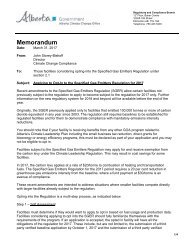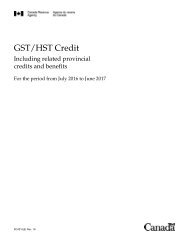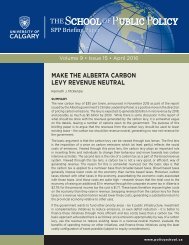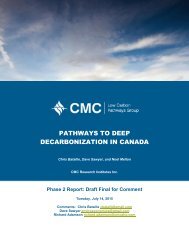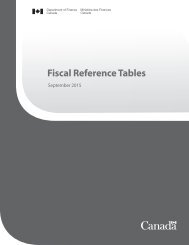China’s National Emissions Trading System
Chinas_National_ETS_Implications_for_Carbon_Markets_and_Trade_ICTSD_March2016_Jeff_Swartz
Chinas_National_ETS_Implications_for_Carbon_Markets_and_Trade_ICTSD_March2016_Jeff_Swartz
Create successful ePaper yourself
Turn your PDF publications into a flip-book with our unique Google optimized e-Paper software.
Global Economic Policy and Institutions<br />
11<br />
be interesting for some ambitious countries<br />
who perceive the UNFCCC negotiating process<br />
as “too slow” and/or having a monopoly on<br />
the governance of carbon markets. There<br />
is a perceived danger, however, that many<br />
developing countries would likely be left out<br />
of initial club arrangements and would thus<br />
not able to partake in the club’s benefits.<br />
This could potentially undermine broader<br />
multilateral climate policy efforts at the<br />
UNFCCC and weaken the ultimate goals of<br />
OECD countries’ climate diplomacy. In order<br />
to deal with this challenge, non-members of<br />
the clubs could for example be given observer<br />
status, which would not only increase<br />
transparency, but could also pave the way for<br />
them to eventually join the club. 30<br />
One of the most anticipated gains from club<br />
participation would be greater cost-effectiveness<br />
in meeting various national emission reduction<br />
targets. The cost savings could lead to greater<br />
ambition amongst club member countries to<br />
reduce emissions, for example by scrapping free<br />
allocations, increasing the schemes’ coverage,<br />
and tightening caps. This increased ambition<br />
is likely the most important global benefit,<br />
especially in light of the more ambitious 1.5<br />
degrees Celsius goal established by the Paris<br />
Agreement. A carbon market club would need<br />
to produce common market infrastructure<br />
such as registries, accounting rules, and offset<br />
protocols, and could provide club members<br />
with intrinsic benefits in the form of exclusive<br />
trading of emissions units, increased liquidity,<br />
price stability, and policy support from other<br />
club members. Technical issues such as MRV,<br />
unit tracking, and so on should be worked out<br />
amongst club members in a transparent and<br />
open working group. Moreover, members of<br />
the carbon market club could gain political<br />
and reputational benefits from joining a club<br />
with higher ambition and more robust trading<br />
architecture rather than simply following a<br />
unilateral carbon market approach. This could<br />
help overcome political restraints that large<br />
emerging economies may have about joining the<br />
club. Criteria for joining a carbon market club<br />
might include the type of emissions cap countries<br />
impose, the long-term emissions reduction<br />
goal of a country’s policy, and/or the level of<br />
financial and political commitment a member<br />
would bring to the club. <strong>China’s</strong> participation in<br />
a club would yield both positive and potentially<br />
negative impacts which the paper will address<br />
in Chapter 5.



